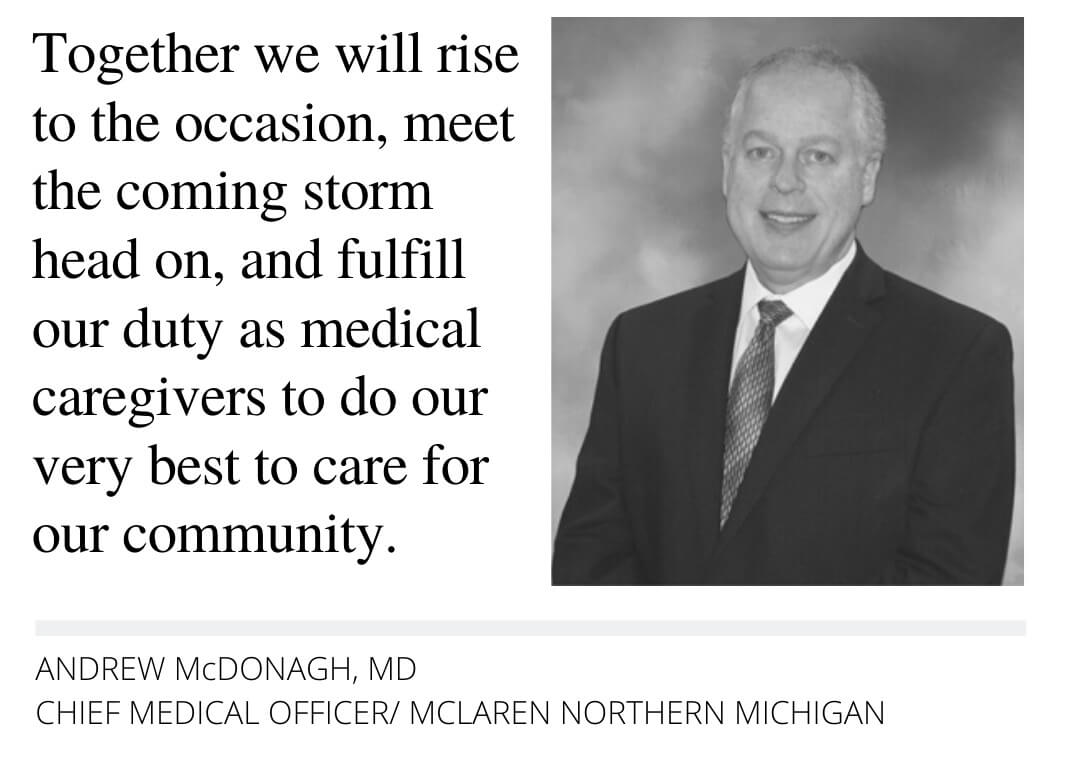Over the past four weeks, the McLaren Northern Michigan team has collectively spent thousands of hours preparing for the COVID-19 pandemic to reach our northern Michigan community. Although the number of confirmed COVID-19 patients in northern Michigan remains low, the team at McLaren Northern Michigan is actively preparing for an influx of COVID-19 positive patients within the coming days and weeks.
Right now, this is the calm before the storm in northern Michigan
“Right now, this is the calm before the storm in northern Michigan,” said Andrew McDonagh, Chief Medical Officer, McLaren Northern Michigan. “We are very early on in our battle with COVID-19 and expect the numbers to rise substantially over the coming weeks. We can see the storm clouds building on the horizon as we look to what is occurring in Southeast Michigan.”
The team at McLaren Northern Michigan is working to expand the hospital’s capacity for isolation units. Currently, McLaren Northern Michigan has one isolation unit treating respiratory patients. The future plans include:
- Implementing additional isolation units for respiratory patients when more beds are needed.
- Care plans for treating COVID-19 and non-COVID-19 patients separately within the hospital.
- Enhanced emergency department triage to treat patients by separating respiratory and non-respiratory conditions.
- Keeping a percentage of beds available to accept patients from other regions of the state. McLaren Northern Michigan may be called upon to serve as a relief site for COVID-19 and non-COVID-19 patients from other parts of the state. Conversely, downstate hospitals will be asked to support McLaren Northern Michigan should we see an influx of patients beyond our capacity.
- The COVID-19 preparedness plans include the Petoskey Campus, the Cheboygan Campus, McLaren Home Care & Hospice, Boulder Park Terrace, and McLaren outpatient clinics.

“We want the community to know that every plan we make prioritizes the health and safety our patients and staff,” said McDonagh. “We hope the plans we are developing will not be necessary, but we are preparing for multiple scenarios. Together we will rise to the occasion, meet the coming storm head on, and fulfill our duty as medical caregivers to do our very best to care for you and our community. Together, as a community, we will weather this storm.”